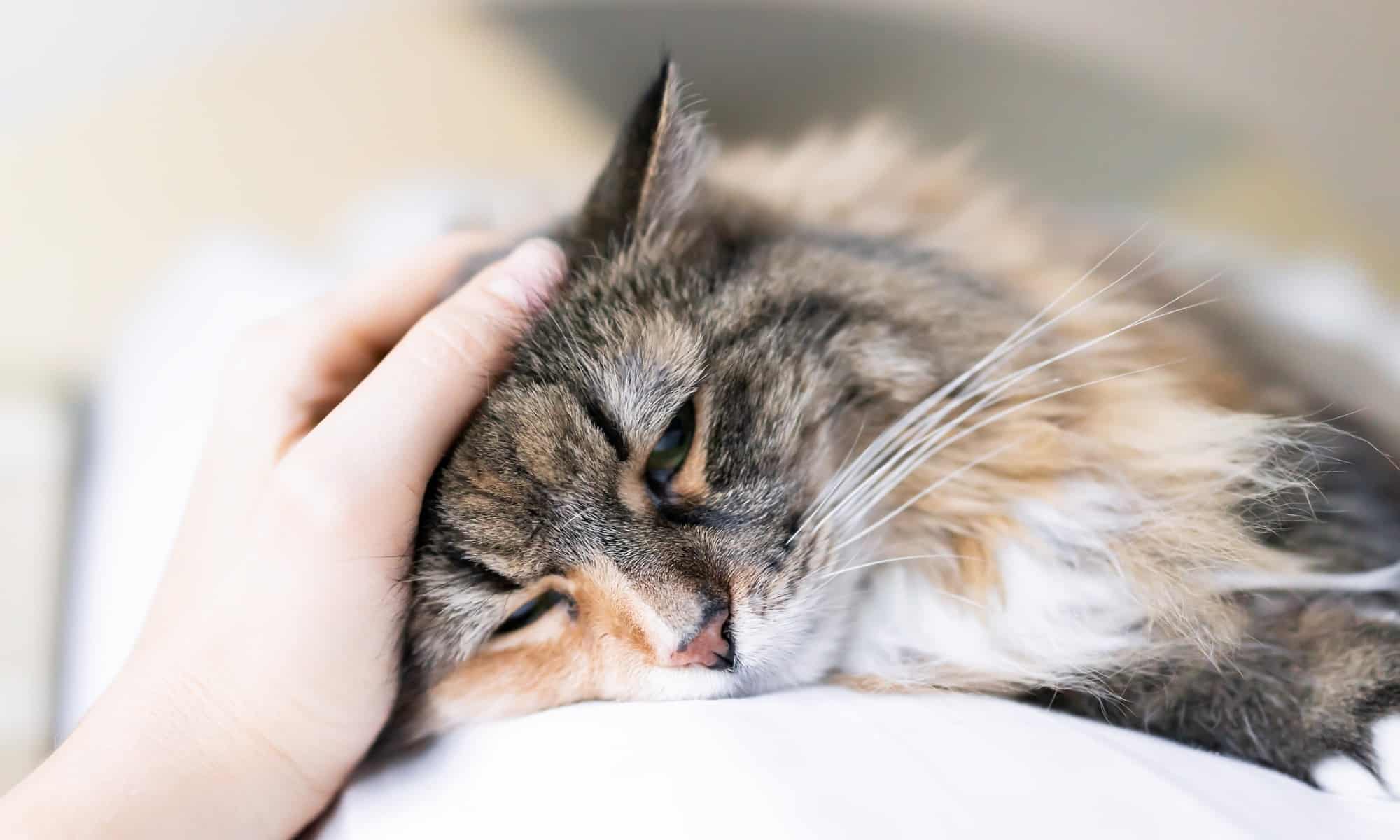As a cat parent, you may know your feline friend is susceptible to various bacterial infections. These infections, however, should not be left untreated and may need to be prescribed an antibiotic from a veterinarian. So, what is Clavamox, and what type of infections does this antibacterial treat? This guide will provide you with information to help you get your sick cat feeling better again in no time!
When Do Cats Need Clavamox?
Clavamox is a type of penicillin that veterinarians prescribe to treat various bacterial infections in cats, such as:
- Soft tissue and skin infections (e.g., abscesses, wounds, dermatitis/cellulitis) are caused by susceptible strains of Staphylococcus aureus, Streptococcus, E. coli, and Pasteurella.
- Urinary tract infections caused by E. coli.
Cats aren’t immune to various health conditions, such as allergies. In addition, cats can attract fleas that attach themselves to their host. The perfect conditions for a bacteria infection to develop from these are between skin folds where it’s warm and moist, leading to irritation and infection. If left untreated, skin infections can develop into bacteria infections, abscesses, or even endocrine disorders such as hyperthyroidism.
Another infection that a cat may develop is a urinary tract infection (UTI), which, if left untreated, can progress to blockage of the urethra, kidney failure, a ruptured bladder, or death.
Once your cat begins treatment for any of these ailments, it should start to show signs of healing.
It’s important to note that you cannot start Clavamox for cats without a veterinary prescription, as not every cat receives the same dosage. In addition, antibiotics might not be necessary for your cat’s infection, and unnecessarily giving them antibiotics may have adverse reactions.
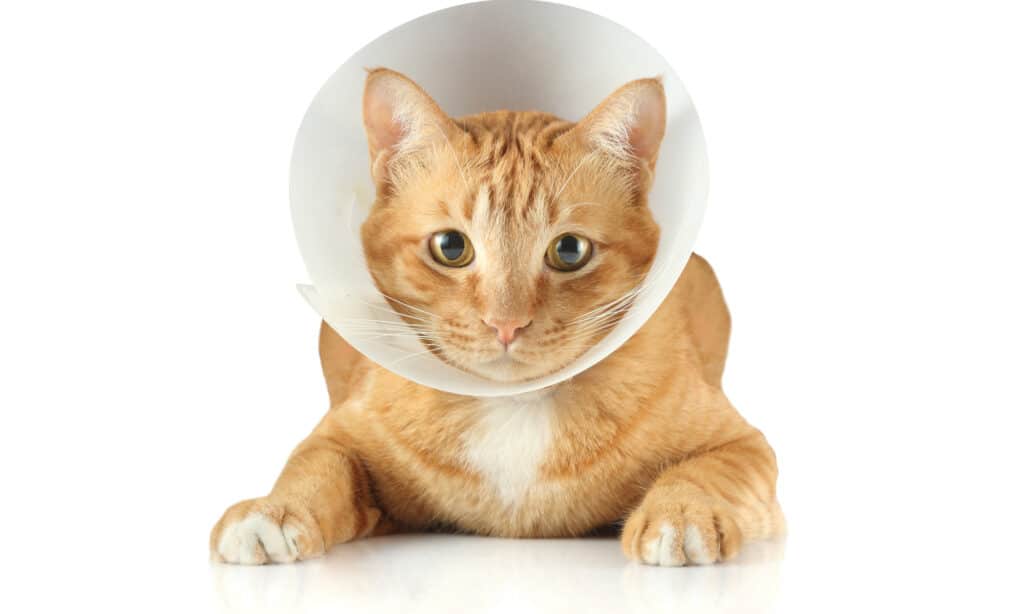
Clavamox is a type of penicillin used to treat various skin infections and UTIs in cats.
©iStock.com/maxsattana
Side Effects of Clavamox on Cats
Clavamox contains both Clavulanic acid and Amoxicillin. You must only administer Clavamox for cats under the guidance of your veterinarian, who will provide you with a prescription. Additionally, you must use caution if you have a pregnant cat taking Clavamox.
While each cat may react differently to the drug, keep an eye out for the following side effects:
- Appetite loss
- Allergic reaction, which may cause hives or labored breathing
- Diarrhea
- Nausea/vomiting
Clavamox can react with the following drugs:
- Other penicillin types
- Antacids
- Chloramphenicol
- Tetracyclin
In the event of an allergic reaction, give your cat epinephrine and/or steroids.
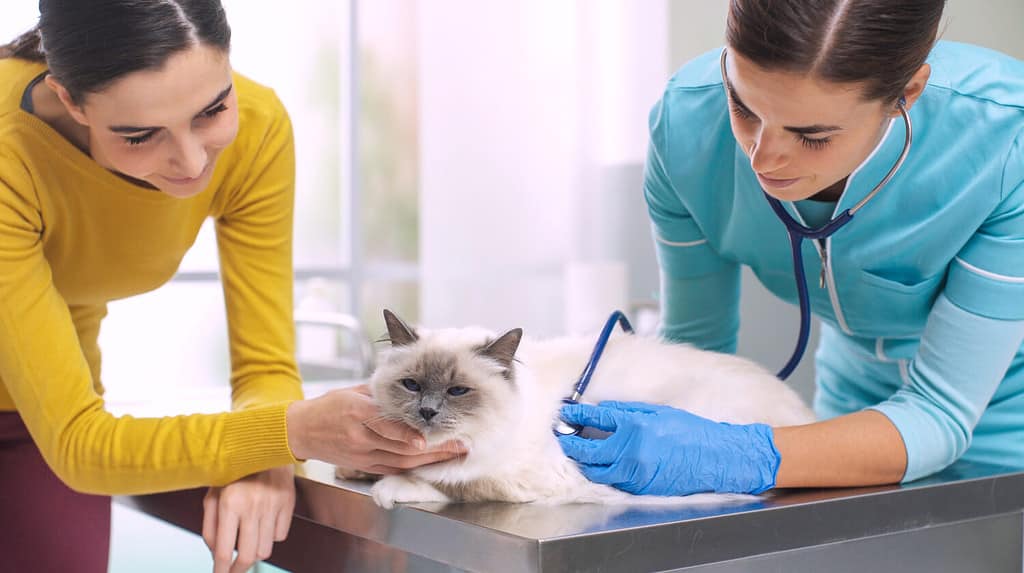
It is very rare for cats to overdose on Clavamox. However, keep an eye out for any side effects that may occur.
©Stock-Asso/Shutterstock.com
Signs of Clavamox Overdose/Allergies in Cats
Administering more than the recommended Clavamox dosage to your cat is not recommended. Should you administer more than the recommended dose to your cat, keep a close eye on them. They may show symptoms of diarrhea or vomiting and may need medical attention from your veterinarian.
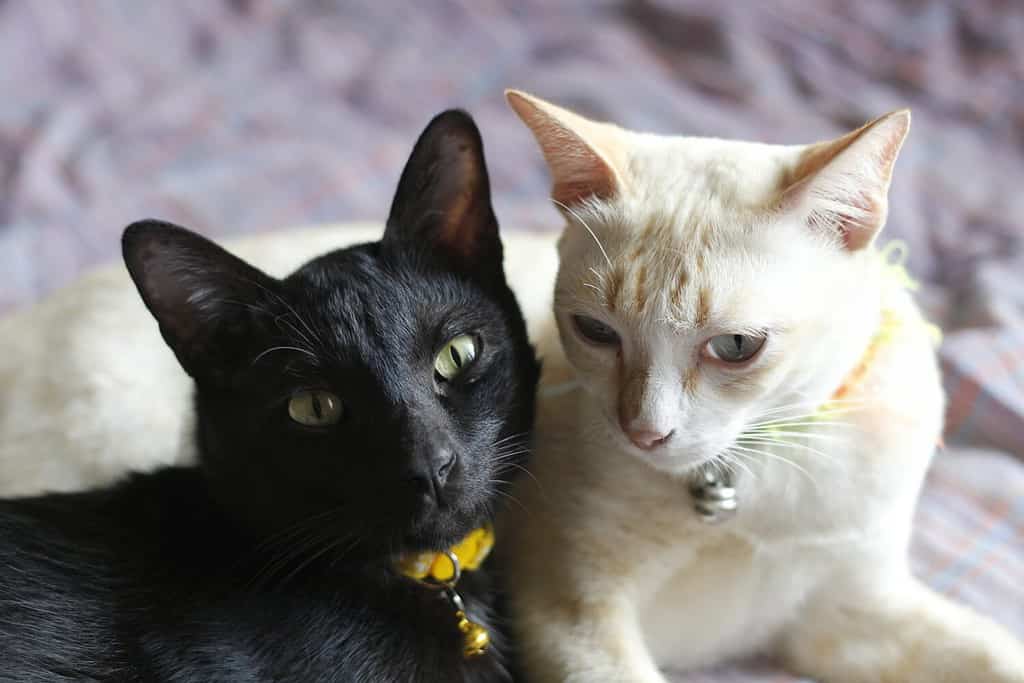
Exercise caution in using Clavamox if your cat is pregnant.
©Wasuta23/Shutterstock.com
Risks to Consider
It’s important to let your vet know if your cat has allergic reactions to antibiotics, as this will help your vet determine if it’s safe to administer Clavamox to your cat. If your cat has an upset stomach or isn’t eating well, your veterinarian may recommend an alternative drug because Clavamox can be harsh on the stomach.
When Is Clavamox Not an Option for Your Cat?
Animals with a history of adverse reactions to penicillin or cephalosporin should not use Clavamox.
Clavamox for Cats Dosage
The recommended Clavamox for cats dosage is 62.5 mg (1 mL) drops twice daily. Abscesses, cellulitis/dermatitis, and other skin and soft tissue infections should be treated for 5-7 days or 48 hours after all symptoms have disappeared. Treatment should not exceed a maximum of 30 days. If there’s no improvement after three days, therapy should be stopped, and the situation reevaluated.
Treatment for urinary tract infections may last 10–14 days or longer. The treatment should not last longer than 30 days.
Ensure that you follow the dosage as your vet prescribes, as the Clavamox for cats dosage is not a prescription but merely a guide.
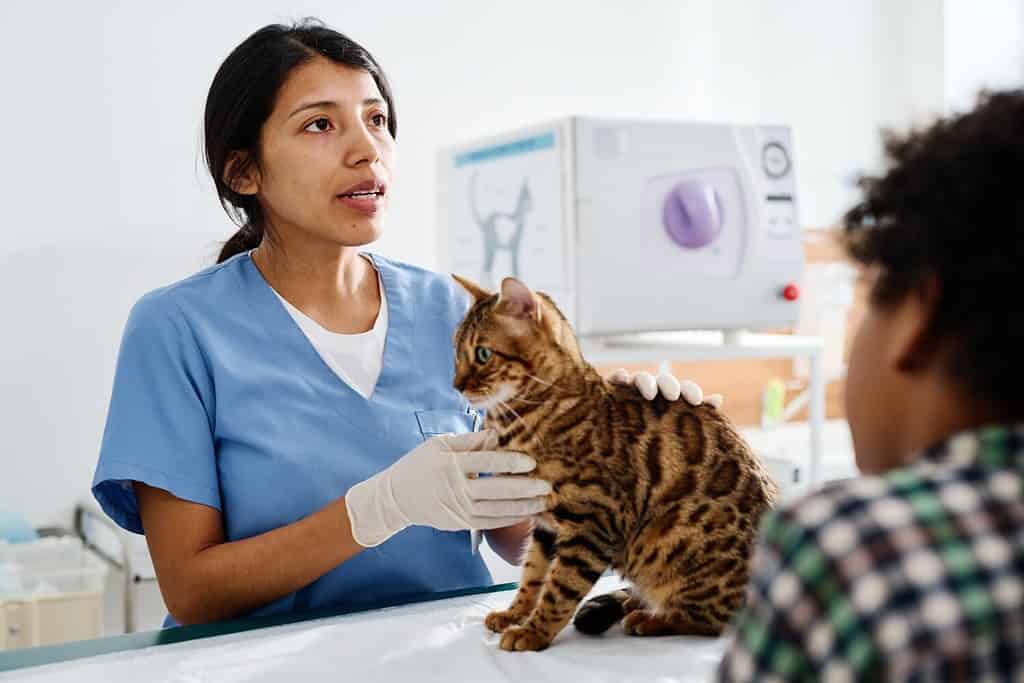
It’s recommended that you seek advice from your veterinarian before trying natural alternatives to Clavamox for cats.
©Pressmaster/Shutterstock.com
Alternatives to Clavamox for Cats
There are alternatives to Clavamox for cats that can be taken in its place. These are non-medication alternatives and do not require a prescription from your vet. However, it is important to discuss this with your veterinarian to ensure it is safe.
Natural antibiotic products for your cat include the following options.
Echinacea Purpurea
Echinacea purpurea is a type of coneflower often used to treat cat ailments. This supplement is a natural product that can help decrease inflammation while supporting the immune system. In addition, Echinacea has been known to treat upper respiratory infections.
Even though Echinacea is a supplement, you must still discuss using it with your vet before administering it to your cat. This is due to some felines experiencing allergic reactions to the plant.
Manuka Honey
Honey has many health benefits for both humans and animals. It has been demonstrated that honey from different species of bees contains antibacterial qualities, making it an excellent natural antibiotic treatment for cats.
Manuka honey is ideal if you’re looking for a topical treatment for your cat to treat various skin infections. This type of honey is a great natural antibiotic because of its antibacterial and healing capabilities.
However, be cautious of the type of honey you use. Raw honey can contain bacteria and other pathogens, so Manuka honey works best.

Manuka honey is a natural remedy used to treat open wounds and infected skin in cats.
©Liga Cerina/Shutterstock.com
Apple Cider Vinegar
Apple cider vinegar is a safe product for treating a UTI in your cat. Incorporating apple cider vinegar into your cat’s diet can be beneficial in maintaining a balanced pH level in their urine, which helps eliminate and prevent harmful bacteria.
Add approximately half a teaspoon of apple cider vinegar to your cat’s daily food intake. If your cat is a picky eater, you can blend the apple cider vinegar with chicken or beef broth to hide the taste. However, ensure the broth you use is low in sodium and contains no onions, as these can be toxic to cats.
Keep in mind that apple cider vinegar is only effective if your cat’s urine is overly alkaline.
Conclusion
Clavamox is a powerful treatment for your cat’s skin or urinary tract infections. However, getting a prescription from your veterinary doctor is important to ensure the correct dosage for your cat. If you decide to treat your cat’s ailments with a natural alternative, discuss this with your vet to ensure it’s safe for your pet.
Thank you for reading! Have some feedback for us? Contact the AZ Animals editorial team.

